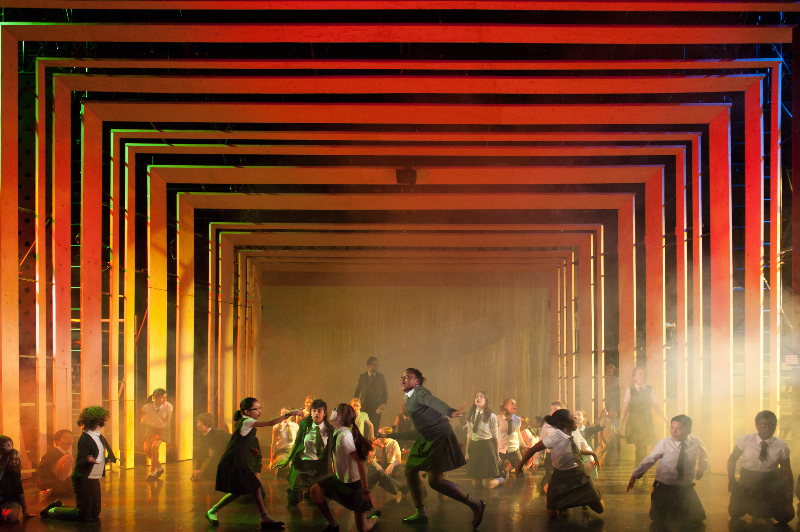The Crackle at the Linbury Studio Theatre

Premiering at the Royal Opera House’s Linbury Studio Theatre, Matthew Herbert’s debut opera The Crackle betrays little in the name. What can be inferred is that, crackling or otherwise, the performance has sound at the heart of its message.
The Crackle is a modern take on the centuries-old myth of Faust, who sells his soul to the devil in exchange for superior knowledge and gratification. In this instance, the devil hungers for the opera’s soul, which Bryn Terfel’s Mephistopheles playfully articulates in operatic terms as its “soul music without the music”. The devil seeks to make a pact with music, specifically its digitalisation, which Herbert sonorously conveys through use of cutting edge electronics.
Herbert’s Faust – modern music – is embodied by George, a music teacher who cherishes art in isolation of the nuisances of today’s funding obsessed society. As with the necessities of opera, where music must complement plot and text, George learns that as his music lessons have failed to follow the necessities of today’s technologically-motivated society his department is due to be shut down. This is Mephistopheles’ cue: his voice enters the stage in order to tempt George who, in a moment of desperation, blindly accepts.
The performance offers a dual message. Overtly, it seeks to subvert the increasing role of the digital in music by asking whether, through the displacement of emotion by codes, music is surrendering its soul. Herbert’s electronic music is complemented by a libretto that is akin to text-speak and, in its repetitive code-like form, is almost entirely devoid of emotion. Less consciously, the performance offers a statement on the role of opera in contemporary society, with music operating as a metaphor for the medium. The opera must continue to adapt to our preferred modes of entertainment if it is to remain relevant. However, in doing so it loses its essential aesthetic properties of beautifully sung speech and theatre, instead offering crackling sounds, bare-bone text and the Chirp app that distracts our engagement with the performance.
And yet we cannot help but enjoy these technological aspects of the show; after all, they are reflective of our tastes. Moreover, the Faust legend unfailingly fascinates us, as we reflect on the timeless conundrum of an irresistible but soul-destroying offer. The neutralising effect of mythology combined with digital reality makes The Crackle an immersive and electrifying experience.
Lena Anayi
Photos: Stephen Cummiskey
The Crackle is at Linbury Studio Theatre, Royal Opera House until 12th April 2014. For further information or to book visit the theatre’s website here.























Facebook
Twitter
Instagram
YouTube
RSS